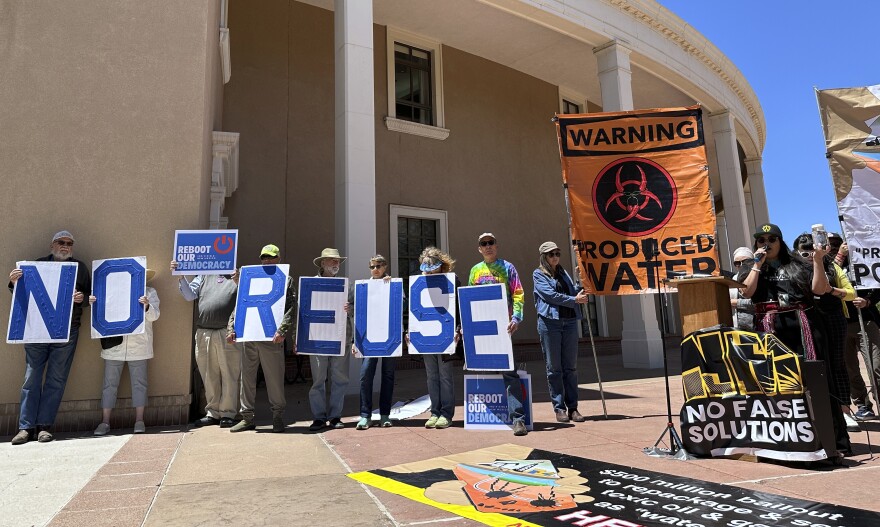By Morgan Lee
Adapted for radio by S. Baxter Clinton
SANTA FE, N.M. (AP) — Environmental officials in New Mexico took initial steps Monday toward regulating the treatment and reuse of oil industry fracking water as the state grapples with scarce water supplies and fossil fuel producers confront shrinking opportunities for wastewater disposal.
A state water quality commission opened a weeklong series of hearings as the nation’s No. 2 state for petroleum production begins to build out a series of rules that initially prohibit the release after treatment of so-called produced water from oil and gas production while still opening the way for pilot projects.
Assistant general counsel to the state Environment Department, Andrew Knight, said in opening statements,“The rule is prohibitive when it comes to any type of release of any type of produced water, whether treated or untreated. At this point, we couldn’t even tell you what testing would be needed to determine that a certain treatment technology or combination of technologies would be protective.”
He said the agency's initial rule would be “as protective as possible while still allowing the science to advance through pilot and then demonstration projects.”
The proposal is generating public protests that give voice to fears of undisclosed contaminants used in the oil- and gas-drilling process. At the same time, oil producers and at least one water service provider say the regulations don't provide specific water quality standards that might help effective treatment projects move forward.
An attorney for Select Water Solutions, a Houston-based water-management company for energy producers with operations in Carlsbad, Liz Newlin Taylor said, The Environment Department "apparently wants a regulation to be able to deny a permit based on the source of the water, not its quality. New Mexico certainly needs additional sources of water, and treated produced water could be part of this solution. These proposed regulations, however, failed."
Several environmental groups are urging the Environment Department to strike definitions that refer to the reuse of treated water in agriculture, recreational fields, rangeland and potable water.

